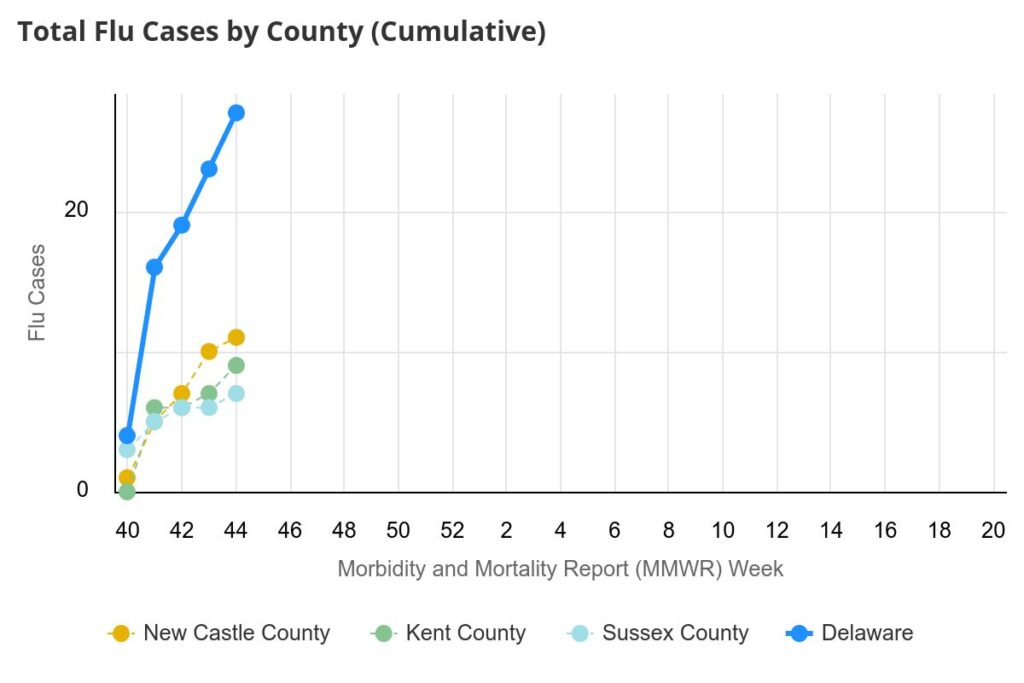Understanding the Flu: What Delaware Residents Need to Know
Flu season is upon us, and it’s essential for everyone in Delaware to be prepared. The flu, or influenza, is a contagious respiratory illness that can lead to serious health issues, so understanding its symptoms, prevention strategies, and treatment options is crucial. Let’s break down what you need to know to keep yourself and your loved ones healthy this flu season.
What is the Flu?
The flu is caused by influenza viruses that infect the nose, throat, and sometimes the lungs. It can cause mild to severe illness and can even be life-threatening. Unlike a common cold, the flu comes on suddenly and can make you feel quite miserable.
When Does Flu Season Occur?
In Delaware, flu season typically peaks from December to March, but it can start as early as October and last until May. It’s important to be vigilant during these months since the virus spreads easily.
 Common Symptoms of the Flu
Common Symptoms of the Flu
Flu symptoms can vary from person to person but often include:
- Fever or chills: Not everyone with the flu will have a fever.
- Cough: Usually a dry cough.
- Sore throat: This can make swallowing uncomfortable.
- Runny or stuffy nose: Congestion is common.
- Muscle or body aches: You may feel achy all over.
- Headaches: These can be severe.
- Fatigue: Extreme tiredness is common.
Some may experience vomiting and diarrhea, although this is more common in children than adults. If you have these symptoms, you can consult with Atracare Telehealth for convenient access to medical advice from home. Visit Atracare Telehealth or reach out to Atracare Primary Care for personalized support.
How Does the Flu Spread?
The flu virus spreads mainly through droplets made when people with the flu cough, sneeze, or talk. You can also get infected by touching surfaces or objects that have the virus on them and then touching your mouth, nose, or eyes.

Prevention: How to Protect Yourself
Here are some effective ways to reduce your risk of catching the flu:
- Get Vaccinated: The flu vaccine is your best defense against the virus. It’s recommended for everyone over six months old. For comprehensive pediatric care, including vaccinations, visit Atracare Pediatrics, where our board-certified pediatricians ensure your child receives the best possible care in a friendly environment.
- Practice Good Hygiene:
- Wash your hands frequently with soap and water for at least 20 seconds.
- Use hand sanitizer when soap isn’t available.
- Avoid Close Contact: Stay away from people who are sick and maintain distance from others if you’re feeling unwell.
- Cover Your Coughs and Sneezes: Use a tissue or your elbow to prevent spreading germs.
- Stay Home When Sick: If you have flu symptoms, it’s best to stay home to avoid infecting others.
When Should You See a Doctor?
Most people recover from the flu without needing medical treatment. However, you should seek medical attention if you experience:
- Difficulty breathing or shortness of breath
- Chest pain or pressure
- Sudden dizziness
- Confusion
- Severe vomiting
Additionally, young children, elderly individuals, pregnant women, and those with chronic health conditions should consult a doctor if they suspect they have the flu. For personalized care and support, visit Atracare to connect with our healthcare professionals who can provide guidance tailored to your needs.
Special Considerations for Children
Flu season can be particularly concerning for children. Here’s what parents in Delaware should know:
1. Symptoms in Children:
- Children may exhibit typical flu symptoms but might also experience irritability or decreased activity levels. If your child seems unusually tired or has trouble breathing, consult a doctor promptly.
2. Vaccination:
- The CDC recommends that all children aged six months and older receive an annual flu vaccine. This is especially important for children with chronic health conditions.
3. Keeping Kids Healthy:
- Encourage good hygiene practices at home and school. Teach your kids to wash their hands regularly and cover their mouths when coughing or sneezing.
4. Managing Illness:
- If your child gets sick, ensure they rest and stay hydrated. Over-the-counter medications may help alleviate symptoms but consult with a pediatrician before giving any medication.
5. Monitoring Symptoms:
- Keep an eye on your child’s symptoms. If they worsen or if they develop high fever or difficulty breathing, seek medical attention immediately.
When Is the Flu an Emergency in Children?
Seek immediate medical care if your child with the flu exhibits any of the following symptoms:
- Trouble breathing or abnormal rapid breathing
- Bluish face or lips
- Ribs pulling in with each breath
- Chest pain
- Severe muscle pain
- Signs of dehydration (no urination for 8 hours, dry mouth, crying without tears)
- Unresponsiveness or not alert when awake
- Seizures
- Fever above 104°F, or any fever in infants under 12 weeks
- Worsening fever/cough symptoms that seem to improve and then return
- Worsening chronic medical conditions, such as asthma
Conclusion
Understanding the flu and how it spreads can help you take proactive steps to protect yourself and your loved ones this season. By getting vaccinated, practicing good hygiene, and knowing when to seek medical help—especially for children—you can navigate flu season with confidence. Stay healthy and informed!
If you believe you or your child may be experiencing flu symptoms, it’s important to seek professional help. For established patients, visit the Pediatrics page for tailored support. For urgent care and non-established patients, you can schedule an appointment with Atracare. Staying informed and getting the right care can make all the difference during flu season. Feel free to let me know if you need any further adjustments or additional information!


























